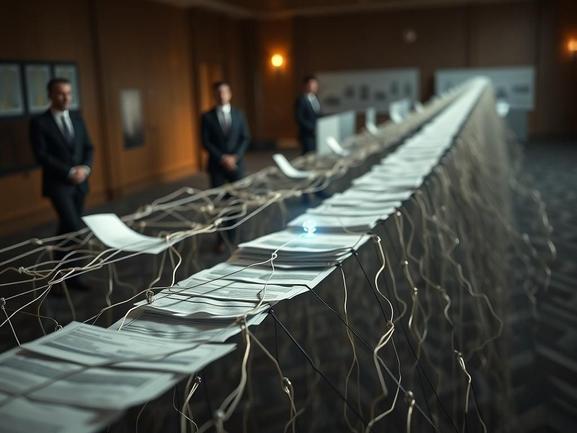The rapid advancement of artificial intelligence has thrust complex legal questions into the spotlight, particularly concerning copyright law. As AI models become more sophisticated, trained on vast datasets scraped from the internet, the lines between fair use, transformative creation, and outright infringement are becoming increasingly blurred. A recent ruling involving AI company Anthropic and a group of authors offers a fascinating, albeit complicated, glimpse into how courts might begin to untangle these issues, delivering a partial victory for the AI firm while simultaneously setting the stage for a potentially costly battle over the very data that fuels its models.
At the heart of one key aspect of the case was the argument around fair use, a legal doctrine permitting limited use of copyrighted material without permission for purposes such as criticism, comment, news reporting, teaching, scholarship, or research. In this specific lawsuit, filed by writers Andrea Bartz, Charles Graeber, and Kirk Wallace Johnson, Anthropic appears to have successfully argued, at least for now, that certain aspects of its AI’s interaction with or generation related to copyrighted works fall under the umbrella of fair use. This element of the judge’s decision is pivotal, suggesting that the deployment or output characteristics of an AI model, under certain interpretations, might be deemed non-infringing activities. This provides a degree of legal breathing room for AI developers regarding how their models are *used* or *respond*, a potentially significant development as the industry navigates a wave of litigation.
However, the narrative is far from a complete triumph for Anthropic. While one door might have opened slightly, another looms large and challenging. The core accusation from the plaintiff writers wasn’t solely about the *output* of the AI, but critically, about the *input* – the massive troves of data used to *train* the Claude models. The lawsuit alleged that Anthropic trained its AI on pirated copies of books. Judge William Alsup of the Northern District of California addressed this separately, and his finding here represents a significant setback for the company. He determined that Anthropic must face a separate trial specifically on the allegations of pirating millions of books from the internet for training purposes. This distinct ruling underscores a potential legal differentiation: the act of training on infringing material might be treated differently—and more severely—than the subsequent use or output of the trained model.
This bifurcated outcome from Judge Alsup provides crucial insights into the evolving judicial perspective on AI and copyright. It highlights a potential legal pathway where training data acquisition is scrutinized independently of AI output.
The ruling suggests that even if an AI’s final output is deemed non-infringing under fair use, the method and source of its training data could still constitute a violation of copyright law, leading to significant liability.
This distinction is paramount for the AI industry, which relies heavily on vast, diverse datasets, often sourced from the web. Companies may need to demonstrate not just that their *outputs* are legally compliant, but that their *training practices* are as well. The damages trial for Anthropic regarding the pirated books could set a precedent for the cost associated with training on copyrighted material without proper licensing or permission.
In conclusion, the Anthropic ruling is a microcosm of the broader legal challenges facing the AI revolution. It’s a reminder that progress in AI does not occur in a legal vacuum and that the foundations upon which these powerful models are built – specifically, their training data – are under intense legal scrutiny. While a fair use argument may offer protection for certain aspects of AI functionality or output, it may not shield companies from liability related to how they sourced the material used for training. The upcoming trial regarding the pirated books will be keenly watched, as it could provide further clarity on the potential financial repercussions for AI developers whose models learn from infringing content. This case serves as a stark illustration of the delicate balance between fostering innovation and respecting the rights of creators in the digital age, a balance that courts, technologists, and legal scholars will continue to grapple with for years to come.
